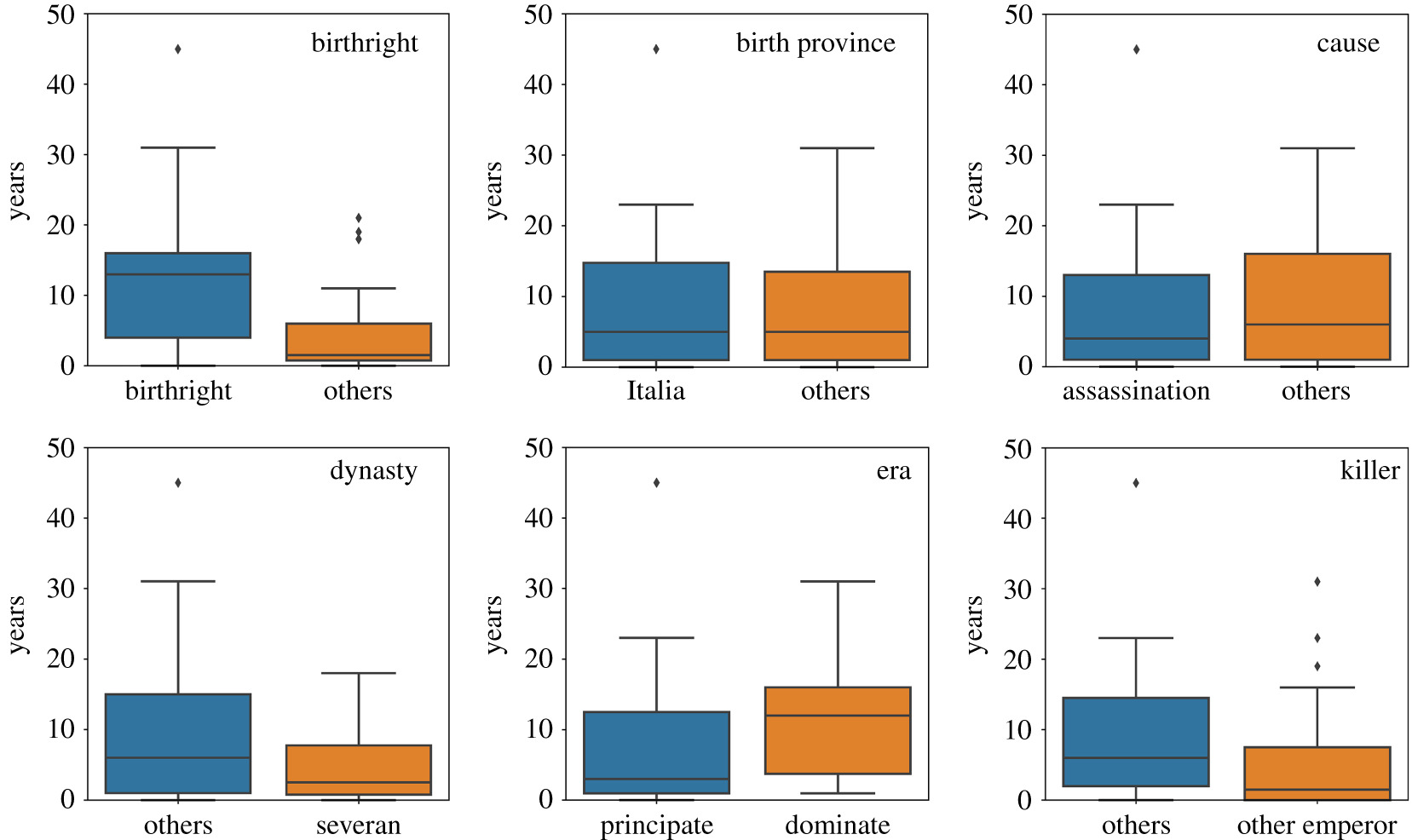Power laws in the Roman Empire: a survival analysis.
RAMOS, Pedro Luiz; COSTA, Luciano da Fontoura; LOUZADA, Francisco; RODRIGUES, Francisco Aparecido.
RAMOS, Pedro Luiz; COSTA, Luciano da Fontoura; LOUZADA, Francisco; RODRIGUES, Francisco Aparecido.




 Abstract: The Roman Empire shaped western civilization, and many Roman principles are embodied in modern institutions. Although its political institutions proved both resilient and adaptable, allowing it to incorporate diverse populations, the Empire suffered from many conflicts. Indeed, most emperors died violently, from assassination, suicide or in battle. These conflicts produced patterns in the length of time that can be identified by statistical analysis. In this paper, we study the underlying patterns associated with the reign of the Roman emperors by using statistical tools of survival data analysis. We consider all the 175 Roman emperors and propose a new power-law model with change points to predict the time-to-violent-death of the Roman emperors. This model encompasses data in the presence of censoring and long-term survivors, providing more accurate predictions than previous models. Our results show that power-law distributions can also occur in survival data, as verified in other data types from natural and artificial systems, reinforcing the ubiquity of power-law distributions. The generality of our approach paves the way to further related investigations not only in other ancient civilizations but also in applications in engineering and medicine.
Abstract: The Roman Empire shaped western civilization, and many Roman principles are embodied in modern institutions. Although its political institutions proved both resilient and adaptable, allowing it to incorporate diverse populations, the Empire suffered from many conflicts. Indeed, most emperors died violently, from assassination, suicide or in battle. These conflicts produced patterns in the length of time that can be identified by statistical analysis. In this paper, we study the underlying patterns associated with the reign of the Roman emperors by using statistical tools of survival data analysis. We consider all the 175 Roman emperors and propose a new power-law model with change points to predict the time-to-violent-death of the Roman emperors. This model encompasses data in the presence of censoring and long-term survivors, providing more accurate predictions than previous models. Our results show that power-law distributions can also occur in survival data, as verified in other data types from natural and artificial systems, reinforcing the ubiquity of power-law distributions. The generality of our approach paves the way to further related investigations not only in other ancient civilizations but also in applications in engineering and medicine. @article={003037836,author = {RAMOS, Pedro Luiz; COSTA, Luciano da Fontoura; LOUZADA, Francisco; RODRIGUES, Francisco Aparecido.},title={Power laws in the Roman Empire: a survival analysis},journal={Royal Society Open Science},note={v. 8, n. 7, p. 210850-1-210850-15 + supplementary material},year={2021}}
@article={003037836,author = {RAMOS, Pedro Luiz; COSTA, Luciano da Fontoura; LOUZADA, Francisco; RODRIGUES, Francisco Aparecido.},title={Power laws in the Roman Empire: a survival analysis},journal={Royal Society Open Science},note={v. 8, n. 7, p. 210850-1-210850-15 + supplementary material},year={2021}}